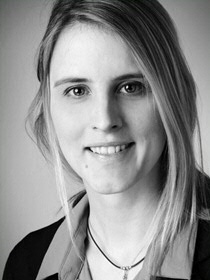A legal framework for decentral cross-border sustainable energy supply
The Smart Energy Region Emmen-Haren (SEREH) project is initiated by the Municipality of Emmen (in the Netherlands) and the city of Haren (in Germany), and aims to create the preconditions for the realization of a decentralized, cross-border and sustainable energy market. With a cross-border connection at distribution grid level, the demand and supply of sustainable electricity can be better matched at the regional level – a unique project in Europe. The kick meeting took place on September 18.
But how do the European, Dutch and German energy legislation relate to each other, and what would a new legal framework to achieve a cross-border local energy community in the Emmen-Haren region look like? Researchers at the UG Groningen Centre of Energy Law are attempting to answer these questions.

Researcher Lea Diestelmeier: ‘Within the SEREH project we analyse the legal situation on both sides of the border in Germany and the Netherlands and EU law, aiming to develop a legal framework for this specific situation which could become an example for other border regions Europe. In 2016 the European Commission published a legislative proposal reforming the electricity sector which also envisages local energy communities operating across borders. The project thus connects to recent legislative developments.’
In Europe, an energy supply in which the demand and supply of sustainable energy is coordinated across borders at the distribution level has never yet been realized. Research is therefore needed to determine not only the legal but also the financial and technical preconditions. Next to the University of Groningen this project thus includes Hochschule Osnabrück, University of Twente, project developer Agrowea, Dutch oil company NAM, grid operator Westnetz, wind turbine manufacturer Enercon and developer Raedthuys.
The SEREH project will receive a European subsidy of more than €1 million from the Interreg programme. This subsidy enables the project partners to further work on designing the first cross-border energy region in Europe. The first results will be published at the end of 2020.
| Last modified: | 13 March 2020 1.41 p.m. |
More news
-
22 April 2025
Impact | Online advice about right to freedom of assembly
In the coming weeks the nominees for the Ben Feringa Impact Award 2025 will introduce themselves and their impactful research or project. This week: Noor Swart and Berend Roorda, on their online information initiative on the right of freedom to...
-
22 April 2025
How do you shield yourself from Big Tech's power?
How can we all become less dependent on Big Tech? A topical and urgent question that is also arising within the University. Recently, a petition by a group of staff members made the rounds that called for the University to break away from Google and...
-
15 April 2025
The Faculty of Law launches podcast The Right to News
On 16 April 2025, the Faculty of Law at the University of Groningen will launch the first episode of its podcast The Right to News (in Dutch: Recht op Nieuws). The theme of the first episode is: “Can the government just ban organizations in the...
